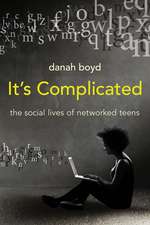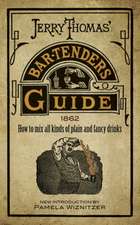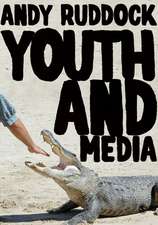The Only Girl In The Car
Autor Kathy Dobieen Paperback – 4 aug 2004
| Toate formatele și edițiile | Preț | Express |
|---|---|---|
| Paperback (2) | 42.39 lei 24-30 zile | |
| Random House – 4 aug 2004 | 42.39 lei 24-30 zile | |
| DELTA – 29 feb 2004 | 99.53 lei 3-5 săpt. |
Preț: 42.39 lei
Preț vechi: 50.66 lei
-16% Nou
Puncte Express: 64
Preț estimativ în valută:
8.11€ • 8.44$ • 6.70£
8.11€ • 8.44$ • 6.70£
Carte disponibilă
Livrare economică 27 martie-02 aprilie
Preluare comenzi: 021 569.72.76
Specificații
ISBN-13: 9780099761617
ISBN-10: 0099761610
Pagini: 240
Dimensiuni: 130 x 197 x 17 mm
Greutate: 0.17 kg
Editura: Random House
Locul publicării:United Kingdom
ISBN-10: 0099761610
Pagini: 240
Dimensiuni: 130 x 197 x 17 mm
Greutate: 0.17 kg
Editura: Random House
Locul publicării:United Kingdom
Notă biografică
Kathy Dobie has written for Harper’s, The Village Voice, Vibe, Salon, and a number of other magazines. She lives in Brooklyn, New York.
From the Hardcover edition.
From the Hardcover edition.
Extras
A House for Children
Let me show you the house of my childhood. a gray house, oyster gray with white trim, sitting on the intersection of Treadwell and Clifford streets in Hamden, Connecticut, neither grand nor mean, just a solid-looking house with a small backyard, a one-car garage with an orange basketball hoop set above the doors, and tiger lilies languid along the driveway. In the backyard, there's a red-and-green jungle gym and swing set that my parents bought at Sears and my father put together himself, kneeling down in the grass in his shirtsleeves, the instructions spread out in front of him, holding a metal rod in each hand, sweat pouring from his brow.
The front yard is moon-shaped and open to the street, giving it a wild and friendly feeling like you might get running down a hill or holding your arms out to someone else running down. On the right side of the house, there's a sunporch with a red-and-green striped awning, a fence and a privet hedge. Between the fence and the hedge, a dirt path has been worn through by my brothers, sisters and me, a shortcut, a children's way to go. The adults must plod up the driveway. There, our blue station wagon is parked under the basketball net.
A white picket fence runs between our house and the house of the family next door, the Wrights, who have a girl named Terry who is my age--eight on the day I'm picturing--and a tomboy. Terry takes trumpet lessons and so does my older brother Bill, and sometimes they take their trumpets and play out of the attic windows to each other, leaning out over the driveway below.
Terry also takes dance classes with me at Miss Marie's Dance Studio on Whitney Avenue. I like ballet, she hates it. Only tap is rough and noisy enough for her. Tap, tap, tap, jump and bang away on the wood floor. Once in ballet class, we had our legs up on the bar and Terry fell over backward. She stayed in the same pose, flat on her back but with one leg up and her toes pointed prettily in the air, did it because she thought it was funny to see Miss Marie and Miss Vera--who didn't give a damn about her--fuss and fuss because they thought she might be hurt, a hopeless dancer but still a tuition-paying daughter of somebody. When I want to play with Terry, I don't ring the doorbell, I stand at the back fence and yell, "Ohhhhh, Terr-eeeeee!" And sometimes to make her laugh I say, "When you're wright, you're wright."
Here's the attic of our house with its slanted, wood-paneled ceilings and the windows tucked under them. There are two bedrooms up here, my sister Cindy's and mine, and our older brothers' room, Michael and Bill's.
In my brothers' room, two of the three windows look out over the intersection of Treadwell and Clifford. It's not much of a view, I suppose, gray and white houses going up along the block, smallish yards, telephone wires looping above the trees like a pencil sketching, a solitary traffic light bobbing above the intersection like a boat on a breeze; but to a child of the suburbs, the view from an attic window is like the view from a castle or a hilltop. Only three floors up but you're as high as almost any high suburban thing, up there with the treetops, the gray roofs and chimneys, the crows, the sparrows, the rain when it's coming down fast before it hits anything.
Michael and Bill have a nubby red carpet in their room, red-and-tan bedspreads, and twin beds that are always made up--we can't go downstairs in the morning without first making our beds. Their desks are already boys' desks, the ink blotters covered with graffiti, the shelves above lined with basketball trophies and not much more, none of the pretty little knickknacks that my sister Cindy and I have collected. Michael's the oldest in the family, a redhead, wiry and energetic, and that's his bed by the two windows overlooking the interesection, and his desk next to the third window in the room, the one that looks down on to the backyard with its swing set and jungle gym. Michael's ten and already confident of his place in the world. Or so it seems to me.
After we come home from church on Sunday, Michael makes the rest of us kids play Mass in the dining room--he is the priest and we are the parishioners, standing and kneeling and standing and sitting and kneeling all over again. We call him Captain Catfish because he's the firstborn and because we have a catfish in the tank downstairs that is the same coloring as Michael, an orangy red, like a flame.
Michael gets the window views but Bill, one year younger, blond and blue-eyed, the family wit, if you can be a wit at nine, gets the bigger desk and dresser. My parents try hard to keep things balanced between us.
"I love all of my children equally!" my mother says, so fervently and so often that I feel it should be inscribed in the house somewhere, above the kitchen doorway perhaps.
Here's the bedroom I share with my sister Cindy, who's one year younger than I--our twin beds with their white blankets, our blue-painted desks, hers covered with statues and pictures of owls and mine with bells and dolls. We have only two little windows, and they look out over the driveway and into the attic of Lori Wright's house, so close it seems like the houses might be secretly talking to each other.
A real live hamster lives in a cage on the shelf above Cindy's desk. His name is Mr. H., and when he's not hurrying and snuffling along the sawdust on the cage floor, he's running on the wheel, running and running and running, his long claws clicking on the wheel and the wheel making a rattling, whirring sound. Between his running and the fact that he ate his mate after she ate all her babies, Cindy and I don't like him much, but what can we do? We have to live with this murderer, this monster, feed him pellets and water in the morning, clean his cage on Saturdays, and watch him exercise all day.
The four of us older kids are only one year apart from each other--ten, nine, eight, and seven. We make up a little tribe of our own, a merry band, the Four Musketeers, and the attic is our domain and hideaway.
Up until this year, we all slept together in the boys' bedroom, but then my father and my great-uncle Lance built another room and we were divided, the boys and the girls, a division I think of as not unlike one of God's acts of creation in Genesis, which seem to me to be about making distinctions, separating the day from the night, the land from the sea, sending birds up, fish down.
We're very close, the four of us, and we manage that without really knowing one another. We don't talk about our feelings. We don't know the exact shape of each other's fears and joys, but we know the scent of each other when we sleep, the sharp, sweet smell and rushing sound of one of us peeing in the toilet bowl in the morning, the feel of Michael's stiff curly hair, springy on the palm of my hand, the shape of the whitish scar on Billy's knee where a long sliver of wood pierced it when he went sliding across a wooden floor one day, the sound of Cindy's dreams at night, the murmurs and quickened breath and sudden shouts of "Help! He's getting away! The frog's on the bridge!"
Our closeness is mute and sensual. We're like a pack of wild animals, eating, drinking, running, always running together until we rest together, running up and down the stairs, through all the rooms of the house, out the back door and over the green, green lawn like lions or birds or floods.
In the weeks after our parents separated us, the girls in one room, the boys in the other, we slept with our doors open, not wanting to shut one another out. Michael and Bill sang Cindy and me to sleep at night, or tried to. Mostly they sang church songs, rousing and mournful and not in any particular order, so their dirgelike rendition of "Swing Low, Sweet Chariot" might be followed with their shouting out, "When the Saints Go Marching In." Cindy and I were so appreciative, and so worried that they wouldn't know how appreciative, that we felt obliged to applaud after each song and call out, "Encore! Encore!" It became what you call a vicious cycle--we couldn't sleep and they couldn't stop singing, and so after a while they gave it up. One night, the bedroom doors seemed to close of their own accord.
Down the stairs we go, to the second floor, where my parents sleep, and little Beth, and where the baby will sleep, too, when he arrives. Beth Ann has a tribe of stuffed animals in her bedroom. She needs a tribe of them, I think, for she is a few years apart from the rest of us and so just a little outside of our merry band. I don't know if she's lonely. I know she's solitary, telling her secrets to her animals and her Mrs. Beasley doll. It makes me feel odd that she has an old lady for a doll, a blue-and-white polka-dotted lady, but old nonetheless with an apron and granny spectacles. Who is taking care of who here?
She's four and she will become Mommy's helper once I stop--the oldest girl and then the youngest, each stepping up in her own time to pound the cutlets, peel the carrots, measure the flour, run down to the basement and put the laundry in the dryer.
Beth Ann's real name is Elizabeth Ann. Our parents named her after the newest saint to be canonized, Elizabeth Ann Seton, but from the start they simply called her Beth Ann.
Beth Ann has long blond hair, which my mother or I brush back into a ponytail. The tail makes a corkscrew and bounces up and down just like a spring when she walks. She has tiny features, pink cheeks, blue eyes. This fifth child was born with arthritis in one leg, and before she even turned two, they made her wear a cast and then a brace for a year. So Beth Ann didn't stand and then walk the way other toddlers do. She got as far as standing, and then they put her in a brace and she had to go back down on the ground, pulling herself along with her arms. My father called her a "trouper." When she looked up at me from the floor, all wide blue eyes and pink cheeks, her little lips in a Cupid sort of bow, she looked like a cheerful storybook caterpillar.
Stephen isn't born yet. He's in my mother's belly. It's fall and he won't arrive until the middle of winter.
Let's take a morning, any morning, a school morning in the fall of that year. The second-floor hallway smells of Irish Spring soap and shaving cream. The bathroom door is open and the steam from my father's shower is still tunneling out and filling the cold autumn hallway with moist heat and prickly scent, like the tracks a big animal might leave, for my father has just finished his shower and left to begin dressing. From my parents' bedroom, I can hear bureau drawers being pulled out and slammed shut, their brass pulls clanking, closet doors opening and closing, the sharp, swift sounds of my father getting ready to go to work, his feet, in shoes now, tapping briskly across the wood floor, a readiness and an energy that puts my sleepiness to shame and thrusts me down the stairs--late, late, I can't be late! I'm always late, it seems, always one step behind where I'm supposed to be.
The hallway stairs lead into the living room, and both are covered in a blue and green shag carpet, an ocean of a carpet, all waving tendrils, lovely on the feet and the source of many games for us children, games I'm beginning to grow out of, like "shark," in which we must hop from one piece of the furniture to the other, never letting our feet touch the sharky sea of the carpet, lest we be eaten alive.
In the kitchen, the light is fluorescent bright on the white linoleum floor and the gray Formica table, and my brothers and sisters are already seated and bent into their cereal bowls, tucked in behind boxes of Cheerios and Kix and Lucky Charms, Michael and Bill and Cindy reading the backs of theirs while they eat, Beth Ann pretending to.
"Hi, honey," my mother says. "Did you have a good sleep?"
She is in her lacy pink nightgown, her green furry robe, her satiny slippers and white athletic socks, and still she shivers. The end of her nose is pink. Her short hair, a brownish blond, is tousled, her face is young, though varicose veins wind themselves around her slender legs, pushing out knots here and there as if a beautiful blue vine were putting out hard buds.
My mother spends her days in the kingdom of children. There, she is our queen, and also our most lowly servant. She was only nineteen when she married my father, dropping out of college against her mother's wishes, twenty when Michael was born, twenty-one when Bill came along, twenty-three and -four for me and Cindy. Her childhood was the exact opposite of ours; it's as if she was born in another country altogether. She was an only child, and fatherless, too, for her parents separated when she was two years old. Her mother had left her husband and driven halfway across the country from Oklahoma to Connecticut, where her sister Bert was living, and my mother never saw her father again. When she was a girl, she prayed to God for a brother or a sister just so she would have some company. Now, with five of us and another one snuggled inside, she's never alone, but she's shy around other adults, and when we are out among strangers I feel that we, her children, serve to cloak and protect her.
She's allergic to something in the morning air, and while she fixes our lunches and tells us to take our elbows off the table or get our pajama sleeves out of the milk, she furiously rubs the end of her nose and sneezes, always in groups of three, achoo achoo achoo. From behind his cereal box, my brother Bill says, "God bless, God bless, God bless you." And no matter how many times he has said that, and this must be the seven hundredth, my siblings and I marvel at his wit.
From the Hardcover edition.
Let me show you the house of my childhood. a gray house, oyster gray with white trim, sitting on the intersection of Treadwell and Clifford streets in Hamden, Connecticut, neither grand nor mean, just a solid-looking house with a small backyard, a one-car garage with an orange basketball hoop set above the doors, and tiger lilies languid along the driveway. In the backyard, there's a red-and-green jungle gym and swing set that my parents bought at Sears and my father put together himself, kneeling down in the grass in his shirtsleeves, the instructions spread out in front of him, holding a metal rod in each hand, sweat pouring from his brow.
The front yard is moon-shaped and open to the street, giving it a wild and friendly feeling like you might get running down a hill or holding your arms out to someone else running down. On the right side of the house, there's a sunporch with a red-and-green striped awning, a fence and a privet hedge. Between the fence and the hedge, a dirt path has been worn through by my brothers, sisters and me, a shortcut, a children's way to go. The adults must plod up the driveway. There, our blue station wagon is parked under the basketball net.
A white picket fence runs between our house and the house of the family next door, the Wrights, who have a girl named Terry who is my age--eight on the day I'm picturing--and a tomboy. Terry takes trumpet lessons and so does my older brother Bill, and sometimes they take their trumpets and play out of the attic windows to each other, leaning out over the driveway below.
Terry also takes dance classes with me at Miss Marie's Dance Studio on Whitney Avenue. I like ballet, she hates it. Only tap is rough and noisy enough for her. Tap, tap, tap, jump and bang away on the wood floor. Once in ballet class, we had our legs up on the bar and Terry fell over backward. She stayed in the same pose, flat on her back but with one leg up and her toes pointed prettily in the air, did it because she thought it was funny to see Miss Marie and Miss Vera--who didn't give a damn about her--fuss and fuss because they thought she might be hurt, a hopeless dancer but still a tuition-paying daughter of somebody. When I want to play with Terry, I don't ring the doorbell, I stand at the back fence and yell, "Ohhhhh, Terr-eeeeee!" And sometimes to make her laugh I say, "When you're wright, you're wright."
Here's the attic of our house with its slanted, wood-paneled ceilings and the windows tucked under them. There are two bedrooms up here, my sister Cindy's and mine, and our older brothers' room, Michael and Bill's.
In my brothers' room, two of the three windows look out over the intersection of Treadwell and Clifford. It's not much of a view, I suppose, gray and white houses going up along the block, smallish yards, telephone wires looping above the trees like a pencil sketching, a solitary traffic light bobbing above the intersection like a boat on a breeze; but to a child of the suburbs, the view from an attic window is like the view from a castle or a hilltop. Only three floors up but you're as high as almost any high suburban thing, up there with the treetops, the gray roofs and chimneys, the crows, the sparrows, the rain when it's coming down fast before it hits anything.
Michael and Bill have a nubby red carpet in their room, red-and-tan bedspreads, and twin beds that are always made up--we can't go downstairs in the morning without first making our beds. Their desks are already boys' desks, the ink blotters covered with graffiti, the shelves above lined with basketball trophies and not much more, none of the pretty little knickknacks that my sister Cindy and I have collected. Michael's the oldest in the family, a redhead, wiry and energetic, and that's his bed by the two windows overlooking the interesection, and his desk next to the third window in the room, the one that looks down on to the backyard with its swing set and jungle gym. Michael's ten and already confident of his place in the world. Or so it seems to me.
After we come home from church on Sunday, Michael makes the rest of us kids play Mass in the dining room--he is the priest and we are the parishioners, standing and kneeling and standing and sitting and kneeling all over again. We call him Captain Catfish because he's the firstborn and because we have a catfish in the tank downstairs that is the same coloring as Michael, an orangy red, like a flame.
Michael gets the window views but Bill, one year younger, blond and blue-eyed, the family wit, if you can be a wit at nine, gets the bigger desk and dresser. My parents try hard to keep things balanced between us.
"I love all of my children equally!" my mother says, so fervently and so often that I feel it should be inscribed in the house somewhere, above the kitchen doorway perhaps.
Here's the bedroom I share with my sister Cindy, who's one year younger than I--our twin beds with their white blankets, our blue-painted desks, hers covered with statues and pictures of owls and mine with bells and dolls. We have only two little windows, and they look out over the driveway and into the attic of Lori Wright's house, so close it seems like the houses might be secretly talking to each other.
A real live hamster lives in a cage on the shelf above Cindy's desk. His name is Mr. H., and when he's not hurrying and snuffling along the sawdust on the cage floor, he's running on the wheel, running and running and running, his long claws clicking on the wheel and the wheel making a rattling, whirring sound. Between his running and the fact that he ate his mate after she ate all her babies, Cindy and I don't like him much, but what can we do? We have to live with this murderer, this monster, feed him pellets and water in the morning, clean his cage on Saturdays, and watch him exercise all day.
The four of us older kids are only one year apart from each other--ten, nine, eight, and seven. We make up a little tribe of our own, a merry band, the Four Musketeers, and the attic is our domain and hideaway.
Up until this year, we all slept together in the boys' bedroom, but then my father and my great-uncle Lance built another room and we were divided, the boys and the girls, a division I think of as not unlike one of God's acts of creation in Genesis, which seem to me to be about making distinctions, separating the day from the night, the land from the sea, sending birds up, fish down.
We're very close, the four of us, and we manage that without really knowing one another. We don't talk about our feelings. We don't know the exact shape of each other's fears and joys, but we know the scent of each other when we sleep, the sharp, sweet smell and rushing sound of one of us peeing in the toilet bowl in the morning, the feel of Michael's stiff curly hair, springy on the palm of my hand, the shape of the whitish scar on Billy's knee where a long sliver of wood pierced it when he went sliding across a wooden floor one day, the sound of Cindy's dreams at night, the murmurs and quickened breath and sudden shouts of "Help! He's getting away! The frog's on the bridge!"
Our closeness is mute and sensual. We're like a pack of wild animals, eating, drinking, running, always running together until we rest together, running up and down the stairs, through all the rooms of the house, out the back door and over the green, green lawn like lions or birds or floods.
In the weeks after our parents separated us, the girls in one room, the boys in the other, we slept with our doors open, not wanting to shut one another out. Michael and Bill sang Cindy and me to sleep at night, or tried to. Mostly they sang church songs, rousing and mournful and not in any particular order, so their dirgelike rendition of "Swing Low, Sweet Chariot" might be followed with their shouting out, "When the Saints Go Marching In." Cindy and I were so appreciative, and so worried that they wouldn't know how appreciative, that we felt obliged to applaud after each song and call out, "Encore! Encore!" It became what you call a vicious cycle--we couldn't sleep and they couldn't stop singing, and so after a while they gave it up. One night, the bedroom doors seemed to close of their own accord.
Down the stairs we go, to the second floor, where my parents sleep, and little Beth, and where the baby will sleep, too, when he arrives. Beth Ann has a tribe of stuffed animals in her bedroom. She needs a tribe of them, I think, for she is a few years apart from the rest of us and so just a little outside of our merry band. I don't know if she's lonely. I know she's solitary, telling her secrets to her animals and her Mrs. Beasley doll. It makes me feel odd that she has an old lady for a doll, a blue-and-white polka-dotted lady, but old nonetheless with an apron and granny spectacles. Who is taking care of who here?
She's four and she will become Mommy's helper once I stop--the oldest girl and then the youngest, each stepping up in her own time to pound the cutlets, peel the carrots, measure the flour, run down to the basement and put the laundry in the dryer.
Beth Ann's real name is Elizabeth Ann. Our parents named her after the newest saint to be canonized, Elizabeth Ann Seton, but from the start they simply called her Beth Ann.
Beth Ann has long blond hair, which my mother or I brush back into a ponytail. The tail makes a corkscrew and bounces up and down just like a spring when she walks. She has tiny features, pink cheeks, blue eyes. This fifth child was born with arthritis in one leg, and before she even turned two, they made her wear a cast and then a brace for a year. So Beth Ann didn't stand and then walk the way other toddlers do. She got as far as standing, and then they put her in a brace and she had to go back down on the ground, pulling herself along with her arms. My father called her a "trouper." When she looked up at me from the floor, all wide blue eyes and pink cheeks, her little lips in a Cupid sort of bow, she looked like a cheerful storybook caterpillar.
Stephen isn't born yet. He's in my mother's belly. It's fall and he won't arrive until the middle of winter.
Let's take a morning, any morning, a school morning in the fall of that year. The second-floor hallway smells of Irish Spring soap and shaving cream. The bathroom door is open and the steam from my father's shower is still tunneling out and filling the cold autumn hallway with moist heat and prickly scent, like the tracks a big animal might leave, for my father has just finished his shower and left to begin dressing. From my parents' bedroom, I can hear bureau drawers being pulled out and slammed shut, their brass pulls clanking, closet doors opening and closing, the sharp, swift sounds of my father getting ready to go to work, his feet, in shoes now, tapping briskly across the wood floor, a readiness and an energy that puts my sleepiness to shame and thrusts me down the stairs--late, late, I can't be late! I'm always late, it seems, always one step behind where I'm supposed to be.
The hallway stairs lead into the living room, and both are covered in a blue and green shag carpet, an ocean of a carpet, all waving tendrils, lovely on the feet and the source of many games for us children, games I'm beginning to grow out of, like "shark," in which we must hop from one piece of the furniture to the other, never letting our feet touch the sharky sea of the carpet, lest we be eaten alive.
In the kitchen, the light is fluorescent bright on the white linoleum floor and the gray Formica table, and my brothers and sisters are already seated and bent into their cereal bowls, tucked in behind boxes of Cheerios and Kix and Lucky Charms, Michael and Bill and Cindy reading the backs of theirs while they eat, Beth Ann pretending to.
"Hi, honey," my mother says. "Did you have a good sleep?"
She is in her lacy pink nightgown, her green furry robe, her satiny slippers and white athletic socks, and still she shivers. The end of her nose is pink. Her short hair, a brownish blond, is tousled, her face is young, though varicose veins wind themselves around her slender legs, pushing out knots here and there as if a beautiful blue vine were putting out hard buds.
My mother spends her days in the kingdom of children. There, she is our queen, and also our most lowly servant. She was only nineteen when she married my father, dropping out of college against her mother's wishes, twenty when Michael was born, twenty-one when Bill came along, twenty-three and -four for me and Cindy. Her childhood was the exact opposite of ours; it's as if she was born in another country altogether. She was an only child, and fatherless, too, for her parents separated when she was two years old. Her mother had left her husband and driven halfway across the country from Oklahoma to Connecticut, where her sister Bert was living, and my mother never saw her father again. When she was a girl, she prayed to God for a brother or a sister just so she would have some company. Now, with five of us and another one snuggled inside, she's never alone, but she's shy around other adults, and when we are out among strangers I feel that we, her children, serve to cloak and protect her.
She's allergic to something in the morning air, and while she fixes our lunches and tells us to take our elbows off the table or get our pajama sleeves out of the milk, she furiously rubs the end of her nose and sneezes, always in groups of three, achoo achoo achoo. From behind his cereal box, my brother Bill says, "God bless, God bless, God bless you." And no matter how many times he has said that, and this must be the seven hundredth, my siblings and I marvel at his wit.
From the Hardcover edition.
Recenzii
"This is the most honest, unflinching account of the sexuality of an adolescent girl I've ever read. Kathy Dobie treads fearlessly in that undiscovered country."
--Haven Kimmel author of A Girl Named Zippy
“Kathy Dobie writes a prose so fine that she leaves the reader breathless with pleasure.”
--Richard Rodriguez
“The Only Girl in the Car is a memoir at its best--haunting honesty combined with literary grace. An impossible task, but this book accomplishes it, in a form so elegant as to seem effortless…. What a storyteller, and what a soul to tell it!”
--Jennifer Lauck, author of Blackbird
"The Only Girl in the Car is at once as comfortable as a dear friend and as terrifying as a dear friend's darkest secret. Open and honest and dignified, this is the memoir, often funny, always intelligent, of an era, of a family, but, most of all, of a remarkable and resilient girl's intimacy with her own mistakes."
--Cathleen Schine, author of Alice in Bed, The Love Letter, and The Evolution of Jane
From the Hardcover edition.
--Haven Kimmel author of A Girl Named Zippy
“Kathy Dobie writes a prose so fine that she leaves the reader breathless with pleasure.”
--Richard Rodriguez
“The Only Girl in the Car is a memoir at its best--haunting honesty combined with literary grace. An impossible task, but this book accomplishes it, in a form so elegant as to seem effortless…. What a storyteller, and what a soul to tell it!”
--Jennifer Lauck, author of Blackbird
"The Only Girl in the Car is at once as comfortable as a dear friend and as terrifying as a dear friend's darkest secret. Open and honest and dignified, this is the memoir, often funny, always intelligent, of an era, of a family, but, most of all, of a remarkable and resilient girl's intimacy with her own mistakes."
--Cathleen Schine, author of Alice in Bed, The Love Letter, and The Evolution of Jane
From the Hardcover edition.








